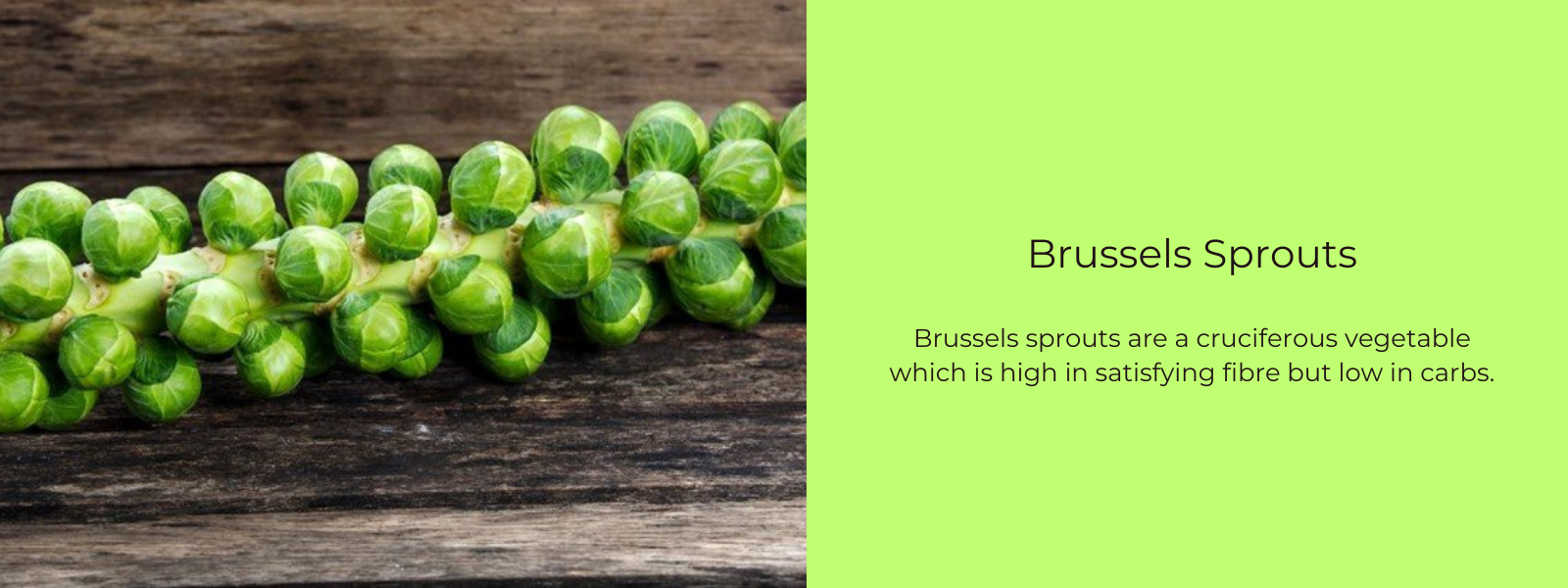Brussels sprouts are a nutrient-rich vegetable, providing substantial vitamin C benefits. With approximately 97 mg of vitamin C per cup of cooked sprouts, they exceed the daily recommended intake for adults. This high vitamin C content supports immune function by enhancing white blood cell activity, crucial for combating infections. Additionally, vitamin C in Brussels sprouts acts as a powerful antioxidant, helping to neutralize free radicals and reduce the risk of chronic diseases such as heart disease and cancer. The vitamin also aids in collagen production, promoting skin health and wound healing. Furthermore, Brussels sprouts support cardiovascular health by maintaining healthy blood vessels and reducing inflammation, while their fiber content benefits digestive health and enhances iron absorption from plant-based sources.
Table of Contents
What Makes Brussels Sprouts a Rich Source of Vitamin C?
Brussels sprouts are an excellent source of vitamin C, with one cup of cooked Brussels sprouts (about 156 grams) providing approximately 97 mg of this essential nutrient. This amount represents about 108% of the daily recommended intake for adults. The high vitamin C content in Brussels sprouts is attributed to their dense nutrient profile and natural metabolic processes, making them a powerful addition to any diet to meet vitamin C needs.
Health Benefits of Vitamin C in Brussels Sprouts
- Immune System Support: Vitamin C in Brussels sprouts boosts the immune system by enhancing the production and activity of white blood cells, which are crucial for fighting infections and illnesses. Consuming Brussels sprouts regularly can help strengthen the immune response and reduce the risk of common colds and other infections.
- Antioxidant Protection: As a potent antioxidant, vitamin C in Brussels sprouts helps neutralize free radicals and reduce oxidative stress. This protective effect helps prevent cellular damage and lowers the risk of chronic diseases such as cardiovascular disease, cancer, and diabetes.
- Skin Health: Vitamin C is essential for collagen synthesis, which maintains skin elasticity and firmness. Eating Brussels sprouts can help reduce the appearance of wrinkles, improve skin texture, and promote faster wound healing. Additionally, vitamin C’s antioxidant properties protect the skin from UV damage and environmental pollutants, aiding in a youthful complexion.
- Cardiovascular Health: The vitamin C in Brussels sprouts supports heart health by promoting healthy blood vessels, reducing blood pressure, and lowering LDL cholesterol levels. These benefits contribute to a reduced risk of heart disease and stroke. The anti-inflammatory properties of vitamin C also play a role in maintaining cardiovascular health.
- Enhanced Iron Absorption: Vitamin C in Brussels sprouts enhances the absorption of non-heme iron from plant-based foods, which helps prevent iron-deficiency anemia and supports overall energy levels. This is particularly beneficial for individuals following vegetarian or vegan diets.
- Digestive Health: Brussels sprouts are high in dietary fiber, which works synergistically with vitamin C to support digestive health. The fiber helps promote regular bowel movements, prevent constipation, and support overall gut health.
Ways to Use Brussels Sprouts
- Roasted: Toss Brussels sprouts with olive oil, salt, and pepper, and roast them in the oven for a crispy, flavorful side dish.
- Sautéed: Quickly sauté Brussels sprouts with garlic and onions for a delicious and nutritious addition to any meal.
- Steamed: Steam Brussels sprouts to retain their nutrients and enjoy them as a simple, healthy side dish.
- Salads: Add shredded or halved Brussels sprouts to salads for a crunchy texture and nutritional boost.
- Soups and Stews: Incorporate Brussels sprouts into soups and stews for added flavor and nutrients.
Brussels Sprouts for Overall Wellbeing
- Immune Support: Regular consumption of Brussels sprouts helps bolster the immune system and improve the body's defense against infections.
- Skin Care: Including Brussels sprouts in your diet can enhance skin health, support collagen production, and protect against environmental damage.
- Hydration and Detoxification: Brussels sprouts' high water content supports hydration and aids in the body's natural detoxification processes.
- Weight Management: Low in calories and high in fiber, Brussels sprouts can aid in weight management by promoting a feeling of fullness and supporting digestion.
Conclusion
Brussels sprouts, with their high vitamin C content, provide a wealth of health benefits, from supporting immune function and offering antioxidant protection to enhancing skin health and cardiovascular function. Their versatility in cooking and rich nutrient profile make them a valuable addition to a balanced diet. Regularly incorporating Brussels sprouts into your meals can help you take full advantage of their health-promoting properties and contribute to overall well-being.









Leave a comment